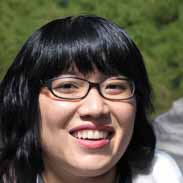Key Terms – Space Flashcard
Unlock all answers in this set
Unlock answersquestion
Oxotremorine
answer
muscarinic selective; long acting (resists AChE hydrolysis); clinical use = experimental model of Parkinson’s disease tremor
question
Accessibility
answer
defined in terms of relative location: opportunity for contact or interaction from a given point or location in relation to other locations.
question
Capitalism
answer
a form of economic and social organization characterized by the profit motive & the control of the means of production, distribution, & the exchange of goods by private ownership.
question
Cognitive distance
answer
the distance that people perceive to exist in a given situation.
question
Cognitive image
answer
psychological representations of locations that are made up from people's individual ideas and impressions of these locations.
question
Cognitive space
answer
space defined and measured in terms of the nature and degree of people's values, feelings, beliefs, & perceptions about locations, districts & regions.
question
Distance-decay function
answer
rate at which a particular activity or process diminishes with increasing distance.
question
Economies of scale
answer
cost advantages to manufacturers that accrue from high-volume production, since the average cost of production falls with increasing output.
question
Formal region
answer
groups of areal units that have a high degree of homogeneity in terms of particular distinguishing features.
question
Friction of distance
answer
the deterrent or inhibiting effect of distance on human activity.
question
Functional regions
answer
regions with some variability in certain attributes but with an overall coherence to the structure and dynamics of economic, political, & social organization.
question
Geodemographic research
answer
uses census data and commercial data (such as sales data & property records)about the populations of small districts in creating profiles of those populations for market research.
question
Geographical imagination
answer
the capacity to understand changing patterns, changing processes, & changing relationships among people, places, & regions.
question
Geographic information systems (GIS)
answer
an organized collection of computer hardware, software, & geographic data that is designed to capture, store, update, manipulate, & display geographically referenced information.
question
Global positioning system (GPS)
answer
system of satellites that orbit the Earth on precisely predictable paths, broadcasting highly accurate time and locational information.
question
Globalization
answer
the increasing interconnectedness of different parts of the world through common process of economic, environmental, political, & cultural change.
question
Human geography
answer
study of the spatial organization of human activity & of people’s relationships with their environments.
question
Identity
answer
the sense that people make of themselves through their subjective feelings based on their everyday experiences & wider social relations.
question
Infrastructure (or fixed social capital)
answer
the underlying framework of services & amenities needed to facilitate productive activity
question
Latitude
answer
the angular distance of a point on Earth’s surface, measured north or south from the equator, which is 0 degrees.
question
Longitude
answer
the angular distance of a point on Earth’s surface, measured east or west from the prime meridian [passes through Greenwich, England.
question
Neo-liberal policies
answer
economic policies that are predicated on a minimalist role for the state, assuming the desirability of free markers as the ideal condition not only for economic organization but also for political and social life.
question
Physical geography
answer
a sub-area that studies the Earth’s natural processes & their outcomes.
question
Region
answer
larger-sized territory that encompasses many places, all or most of which share similar attributes in comparison with the attributes of places elsewhere.
question
Regional geography
answer
study of the ways in which unique combinations of environmental & human factors produce territories with distinctive landscapes & cultural attributes.
question
Remote sensing
answer
collection of info about parts of the Earth’s surface by means of aerial photography or satellite imagery designed to record data on visible, infrared, & microwave sensor systems.
question
Sense of place
answer
feelings evoked among people as a result of the experiences & memories that they associate with a place, & to the symbolism that they attach to it.
question
Site
answer
the physical attributes of a location ---- its terrain, its solid, vegetation, & water sources, for example.
question
Situation
answer
the location of a place relative to other places & human activities.
question
Spatial analysis
answer
the study of geographic phenomena in terms of their arrangement as points, lines, areas or surfaces on a map.
question
Spatial diffusion
answer
the way that things spread through space and over time.
question
Spatial interaction
answer
the movement and flows involving human activity.
question
Supernational organization
answer
the collections of individual states with a common goal that may be economic &/or political in nature; such organizations diminish, to some extent, individual stare sovereignty in favor of the group interest of the membership.
question
Time- space convergence
answer
the rate at which places move closer together in travel or communication time or costs.
question
Topological space
answer
the connections between, or connectivity of, particular points in space.



